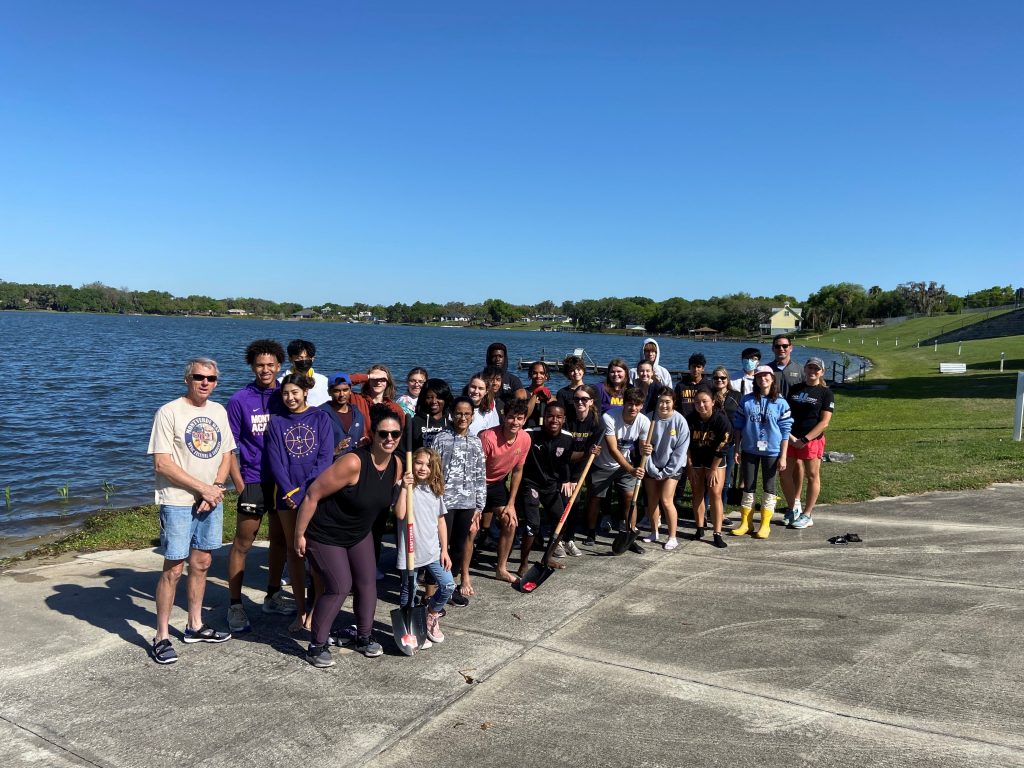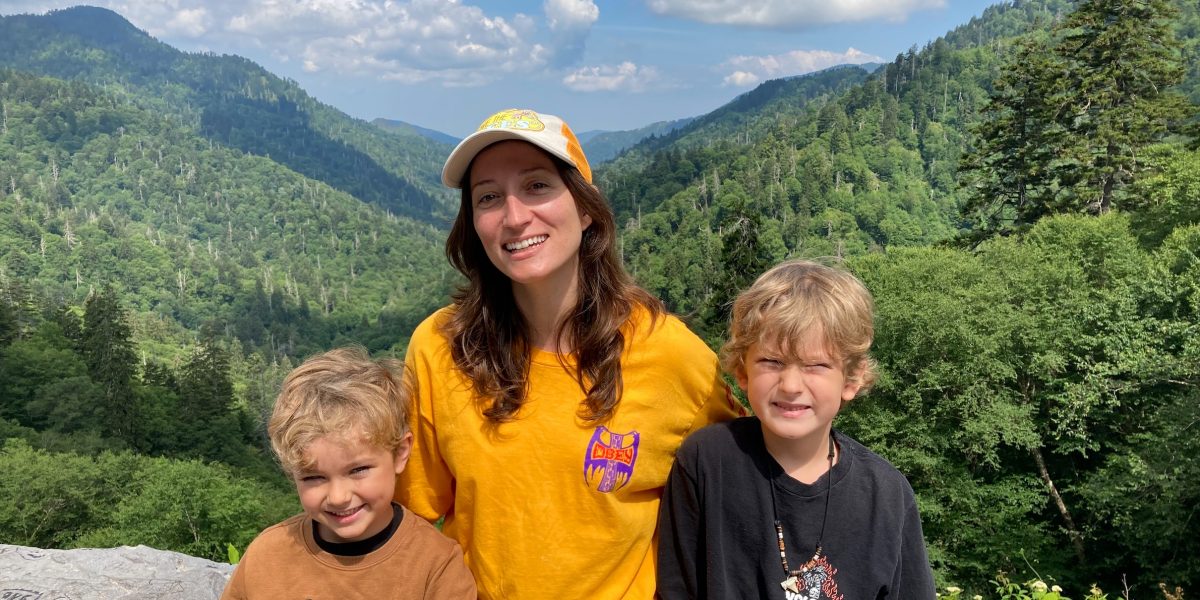By Nichole Smith
I bequeath myself to the dirt to grow from the grass I love,
– Walt Whitman, Song of Myself, 52
If you want me again look for me under your boot-soles.
Mrs. Amy Napoles, an Upper School science teacher at Montverde Academy (pictured above with her two children in the Smoky Mountains), is currently working on a Master of Science Degree in soil and water science at the University of Florida’s Department of Soil, Water, and Ecosystem Science.
“What I’m fascinated by is nutrient cycling,” she said, “and how every little piece of matter that exists, every bit of carbon, every bit of nitrogen, every bit of oxygen, it flows through this constant, never-ending, dynamic process of change and transformation.
“People have always known life recycles. People are born of the earth and eventually return to the earth, and we can say the same thing about all life. The more that we uncover in biology, in chemistry, in physics, it all seems to connect back to this idea of how the earth is this overwhelmingly complex system that all just fits, and even today we are still just starting to understand how it all works.
“I think there is almost kind of a poetry in it. It’s science, but it’s also mystery, and it’s also symbolic of this constant idea of rejuvenation and recycling and rebirth and renewal. That’s in so many facets of human culture. To see it in science in a more literal sense is really cool because I feel like we connect to it on a more visceral level. That’s what’s happening in our bodies, so that’s what’s happening in our ecosystems, and that’s what’s happening all around us.”
Mrs. Napoles does not expect her students to enter her class and shout, “Yay, soil,” but she does have several students every year who perk up and take ownership of their assignments related to soil. Just this year, one student convinced her peers in a group project to create a music video called “Don’t Spoil Our Soil.” “It is kind of my favorite thing that anyone has ever created,” said Mrs. Napoles, “and I will never let the video get deleted.”

Mrs. Napoles has a unique way of creating an environment in her classroom that helps students connect with the material in a poetic way. “When I think of good poetry, the things that stand out are what make you feel something powerful. It’s a strong emotion. And I think there’s some parallel when you suddenly feel that you are connected. What I teach is all about interrelatedness and how the nonliving part of our ecosystem relates to the living part. If something happens to rocks and temperature of the water and the water itself, how does that affect the creatures that live there and vice versa? From an ecological perspective, it’s all about finding connections and interrelatedness and how every individual has inherent value and importance because of this thread of connection, and to me, that’s emotional because I’m one of those threads.”
Carl Sagan is one of her biggest science heroes, and she feels a deep connection to the philosophies he discusses in his book Pale Blue Dot. “It’s profound how he was able to put into words the significance of all of us just from this photograph [of planet Earth from 3.7 billion miles away], this moment of introspection where we have this tiny piece of technology looking back in this vast, empty nothingness, and there’s this tiny, vulnerable, perfect little speck that just happens to work out where we have life and all this amazing diversity.”



